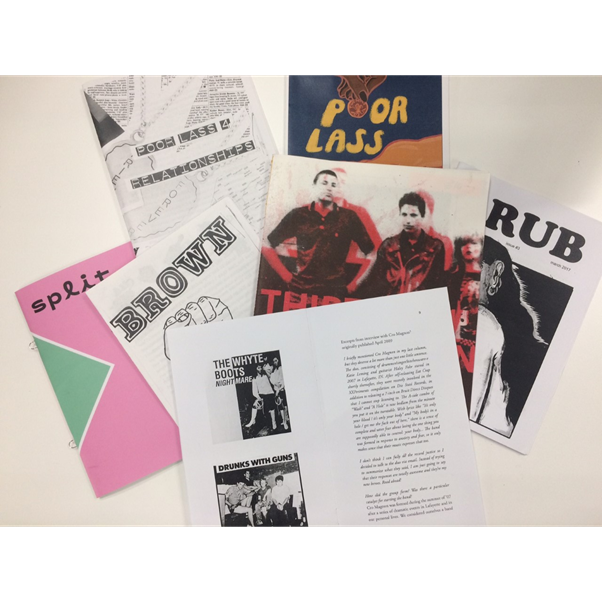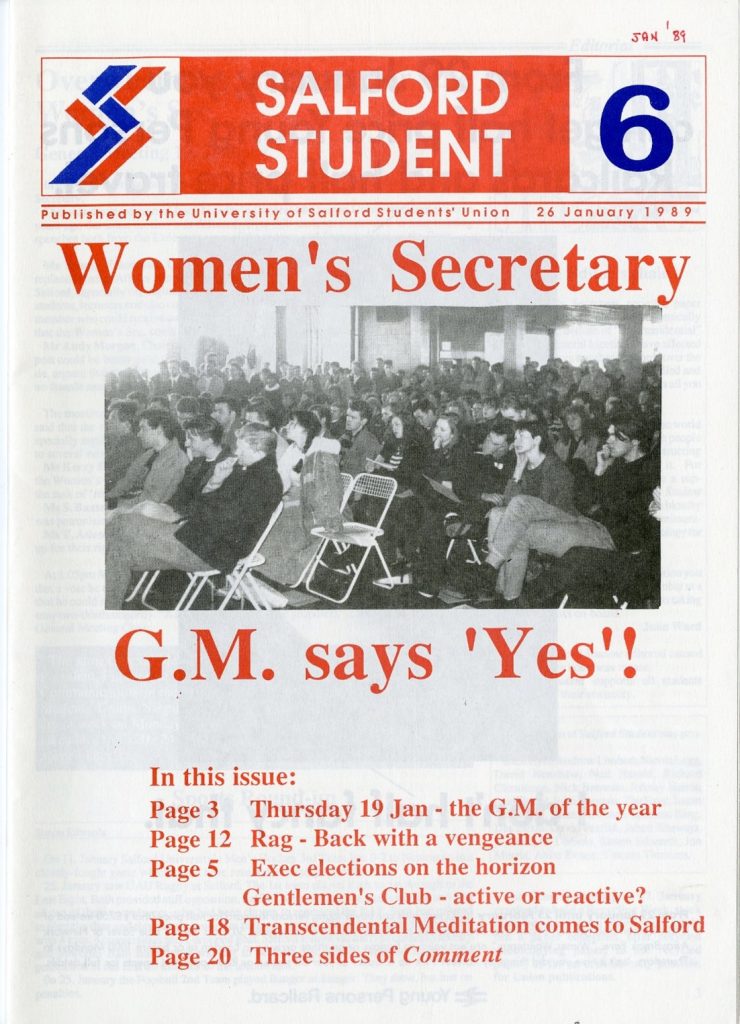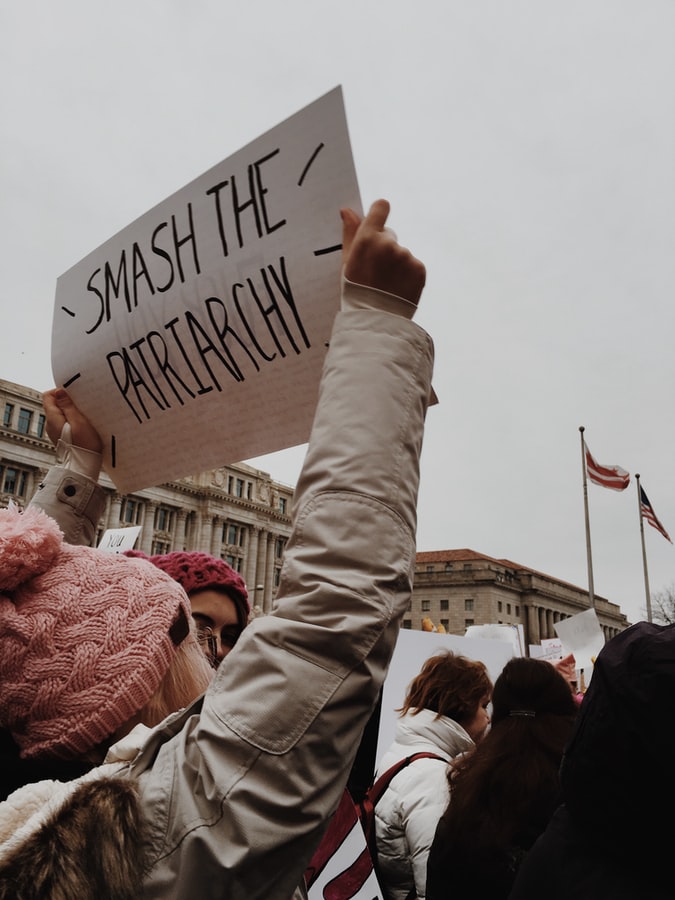International Women’s Day is important, not only to celebrate the incredible women around us. But also to further understand the change that needs to be made in order to achieve equality. Each year presents a new theme for IWD, with 2021 being ‘Choose to Challenge’. With this call to action, we challenged ourselves. We’ve delved into, and highlighted, a wealth of resources that the Library has on offer. So, with this mind; come on, let’s challenge, and let’s make a change!
“A challenged world is an alert world and from challenge comes change”
Internationalwomensday.com
Inspiring women on our International Women’s Day reading list
From trailblazing environmentalists to maverick writers, explore the lives and works of pioneering women and activist groups in our IWD reading list. Films, sound recordings, poetry, and polemics have been selected in line with this year’s theme. Here are our top picks:
Firstly, follow Wilma Mankiller’s journey to becoming the first female Principal Chief of the Cherokee Nation in the absorbing documentary, Mankiller. Watch her tackle discrimination to make real gains for her community in healthcare, education, and employment.
Then get to know the sharp and slyly funny short stories of Agnes Owens. Described as “the most unfairly neglected of all Scottish writers” by writer Alasdair Gray, her superb output is informed by her experiences as a working-class mother of seven.
Afterwards, why not try the ground-breaking Ecofeminism by Vandana Shiva and Maria Mies? Published in 1993, the book remains vital today. Detailing the relationship between environmental destruction and patriarchal domination, it calls for co-operation between global social movements.
Finally, UN Women’s short article, Intersectional feminism: what it means and why it matters right now, offers further advice if you’re choosing to challenge, making plain the importance of an inclusive feminist movement.
Women making zines
Before blogs and vlogs, zines allowed women to have candid conversations about sexism, sex, birth control, body image, and plenty more. As part of the feminist-punk movement Riot Grrrl, there was a huge burst of zine activity in the 1990s. You can explore this fascinating history in Girl Zines: Making Media, Doing Feminism.
The scene is still fiercely alive and kicking today. So, from our own growing zine collection, check out Seleena Laverne Daye’s brilliant Brown Girls series, “a celebration of brown girls, queer punks and black weirdos.” Or try the fantastic Poor Lass series, edited by Seleena and Em Ledgar. It gives space for working class women to tell their own stories of relationships, education, housing and more. We also strongly recommend Jamie Johns’ zine on women in punk, Punk is Dad. Humorously, Jamie dissects sexist lyrics and lazy marketing ploys.
We can’t wait to share these with you very soon.

Celebrating women in our Archives and Special Collections
You can also find and celebrate women in our Archives and Special Collections. The Library’s Archivist, Alexandra Mitchell, has made some brilliant suggestions on how you might go about research:
“The IWD2021 theme #ChoosetoChallenge is a reminder of how important it is for women to have a platform and feel confident enough to use it. Our collection of British Election Campaign leaflets (Archive Ref: BEC) would be a useful resource to explore the role of women in local and national politics, the mandates on which they stood and even how they were represented in the public sphere.”
“Looking through the archives, I was struck by the front cover of the January 1989 edition of the Salford Student magazine from our institutional archives. It marks an historic moment for the USSU – the creation of a Women’s Secretary to represent, receive complaints and give women a voice. At that time women were a minority amongst the student (and staff!) body and some had faced harassment.”

“But searching for women’s voices in the historical record can be tricky. The politics of power have meant that it is the male experience which has tended to dominate and largely determined what has been kept. We could take a creative approach to find women in existing collections by unpicking and counter-reading the content. For example, the literary collections we hold such as the Stanley Haughton Collection (Archive Ref: SHC) are of male writers. But could we use these to explore depictions and characterisations of women who challenged the status quo?”
Explore women’s stories in local archives and special collections
“Beyond our own collections, the Working-Class Movement Library is always a good resource. They hold plenty of material about women-led social and political groups and movements. Looking for the voices of women from racial and ethnic minority groups including Black, Asian and Chinese have historically been even harder to find. The Ahmed Iqbal Ullah Race Relations Resource Centre collects and makes accessible archives to tell the story of race, ethnicity, and migration, including the experiences of women, in Manchester and the UK.”
Got any suggestions for the reading list? Let us know! Comment below, or request an item for the Library through our Ask for a new library item service or your Library Champion.
If you’d like to learn more about our plans for a Zine Zone in the Clifford Whitworth Library, please get in touch with Abby Kearney (a.kearney@salford.ac.uk).
More information about the University’s Archives is available on the Library website or contact Alex at A.Z.Mitchell@salford.ac.uk

